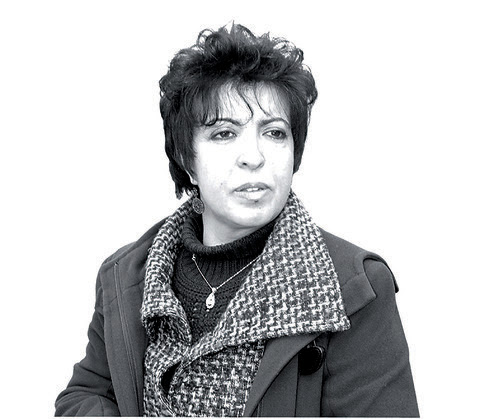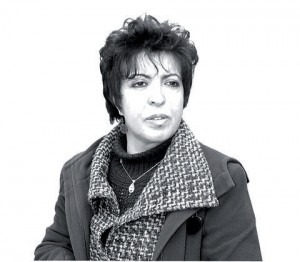WNN – Women News Network
Fouzia Assouli is President of the Federation of the Democratic League for Women’s Rights, a Moroccan NGO.
I have been fighting for women’s rights in Morocco for almost 40 years, and while we don’t yet have a month dedicated to commemorating women’s history as American women do, we have had many victories. And despite setbacks, I continue to have great hope for the future of women in my country.
Growing up in Morocco in the 60s and 70s, I was lucky that my parents always made sure that my brothers and sisters felt equal and entitled to the same opportunities, urging each of us to get an education. But by the time I reached high school, I realized that many Moroccan women were, in fact, living very different lives from men. I saw that while I was pushed to do anything I set my mind to, some of my girlfriends were simply encouraged to find a good husband and marry well. And I learned that there were women in far worse circumstances – who could be easily divorced by their husbands, with no right to any property settlement, with no recourse; or who couldn’t work without their husband’s permission.
I knew that the only way to make change was to take action. By the early 1980s I was working with other women rights activists and human rights defenders to change the Personal Status Code—Morocco’s law governing all things relating to human and women’s rights issues at the time. In 1999, when the new King, His Majesty Mohammed VI, ascended the throne, we saw a new opportunity for reform and created the Democratic Front for the Rights of Women. Despite confronting opposition from conservatives and Islamists, the country succeeded in reforming the family law in 2004.
And we didn’t stop there. We launched awareness campaigns in advance of the 2007 elections, and we built a network of women activists, Femmes Solidaires (Women in Solidarity), involving hundreds of local associations across the country, to combat gender-based violence. When King Mohammed VI made a historic speech in 2011 calling for expanded women’s rights and announcing the drafting of a new Constitution, we worked to ensure that the document guaranteed equality between men and women and prohibited sex discrimination.
As a result, over the past two decades, Moroccan women have fought for and won the right to divorce and the right to be the equals of men under the law. Morocco has women in top positions. They are ministers or Members of Parliament (MPs) and participate in major decisions. We managed to create a lobby of women MPs to support women’s rights, including the revision of discriminatory laws and the proposal of a quota to ensure women’s access to elected offices. Great progress has been made; and today, Morocco is hailed as one of the most progressive Muslim countries in the Middle East and North Africa on women’s issues.
It is true that obstacles persist, including resistance from people whose mentality has not yet changed. Last month, for example, the women’s and human rights community was deeply disappointed when Morocco’s parliament passed a women’s rights bill that – despite years of demands from NGOs and activists — failed to criminalize marital rape, among other shortcomings. The social, political, and economic rights of Moroccan women still have not been fully realized.
But we cannot give up and say that it’s over. We are and must continue to be vigilant. As an example, we are continuing to lobby parliament to bring amendments to the bill to fight against violence against women. As women, we do not have a day of rest, a moment of relief, in our struggle for equality; our fight for fairness and freedom goes on, day in and day out. Some battles are won, and some are lost, but we continue. I have made the fight for the rights of women my life. Every day, every moment, wherever I am, I fight for women to be free. And when a battered woman wins her case in court; when a woman who has come to you in the past in desperate straits calls to tell you that the judge has sentenced her abusive husband to prison—the rewards are worth the fight.
Fouzia Assouli is President of the Federation of the Democratic League for Women’s Rights, a Moroccan NGO.
______________________
Recognized by UNESCO for ‘Professional Journalistic Standards and Code of Ethics” WNN began in 2005 as a solo blogger’s project by WNN founder Lys Anzia. Today it brings news stories on women from 5+ global regions to the attention of international ‘change-makers’ including the United Nations and over 600 NGO affiliates and United Nations agencies.
______________________
WNN – Women News Network








